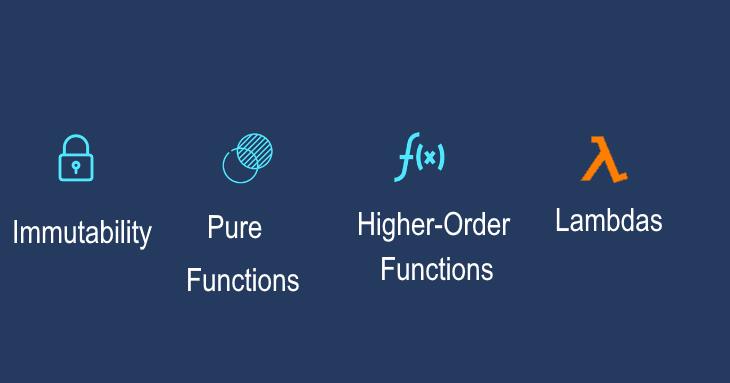An Introduction to Functional Programming in Java

Functional programming is a programming paradigm that treats computation as the evaluation of mathematical functions and avoids changing-state and mutable data. While Java is traditionally seen as an object-oriented language, it has incorporated features of functional programming over the years. In this article, we’ll explore the basics of functional programming in Java.
Key Concepts of Functional Programming
1. Immutability:
In functional programming, data is immutable, meaning once a variable is assigned a value, it cannot be changed. This reduces side effects and makes programs more predictable. In Java, you can achieve immutability by using the final keyword for variables.
1
2
final int immutableValue = 42;
immutableValue = 24; // This will result in a compilation error
2. Pure Functions:
A pure function is a function where the output is solely determined by its input parameters without observable side effects. It doesn’t rely on external state, and for the same input, it will always produce the same output. This predictability makes code more understandable and testable.
1
2
3
4
//Pure function
int add(int a, int b) {
return a + b;
}
3. First-Class and Higher-Order Functions:
In functional programming, functions are first-class citizens. This means you can treat them like any other variable. Java introduced the java.util.function package, which includes functional interfaces like Function, Predicate, and Consumer. These interfaces allow the use of lambda expressions and method references.
1
2
3
4
5
6
7
8
//First-class function
Function<Integer, Integer> square = x -> x * x;
//Higher-order function
Function<Function<Integer, Integer>, Integer> applyTwice = f -> f.apply(f.apply(2));
//We pass a first-class function as a variable
int result = applyTwice.apply(square); // Result: 16
4. Lambda Expressions:
Lambda expressions provide a concise way to express instances of single-method interfaces (functional interfaces) using the syntax (parameters) -> expression. They are a cornerstone of functional programming in Java.
1
2
3
4
5
6
7
List<Integer> numbers = Arrays.asList(1, 2, 3, 4, 5);
// Using lambda expression
numbers.forEach(number -> System.out.println(number));
// Using method reference
numbers.forEach(System.out::println);
5. Streams:
Java introduced the Stream API to perform functional-style operations on sequences of elements. Streams enable concise and expressive code for operations like filtering, mapping, and reducing.
1
2
3
4
5
6
7
List<Integer> numbers = Arrays.asList(1, 2, 3, 4, 5);
// Using Stream API to filter and sum
int sum = numbers.stream()
.filter(n -> n % 2 == 0)
.mapToInt(Integer::intValue)
.sum();
Benefits of Functional Programming
1.Readability and Conciseness:
Functional programming encourages writing code in a more declarative and expressive style. This can lead to more readable and concise code, making it easier to understand and maintain.
2.Parallelism and Concurrency:
Immutability and the absence of shared state in functional programming make it easier to reason about and parallelize code. The Stream API in Java facilitates parallel execution of operations.
3.Reduced Bugs and Side Effects:
Pure functions and immutability reduce the likelihood of bugs and make code more predictable. With no side effects, functions have clearer behavior, making it easier to reason about their impact.
4.Testability:
Pure functions and the ability to treat functions as first-class citizens enhance testability. Unit testing becomes more straightforward when functions are isolated and stateless.
Challenges and Considerations
While functional programming brings many advantages, it may not always be the best fit for every situation. Learning a new paradigm and applying it effectively requires time and practice. Additionally, not all problems are well-suited for a functional approach, and sometimes a hybrid of functional and object-oriented programming is the most pragmatic solution.
In conclusion, Java has embraced functional programming concepts over the years, providing developers with powerful tools to write cleaner, more maintainable, and parallelizable code. By incorporating these concepts into your Java development, you can take advantage of the benefits of functional programming while building robust and scalable applications.
Please support me as a writer. Your donation will help add more articles to this website. Thank you!
